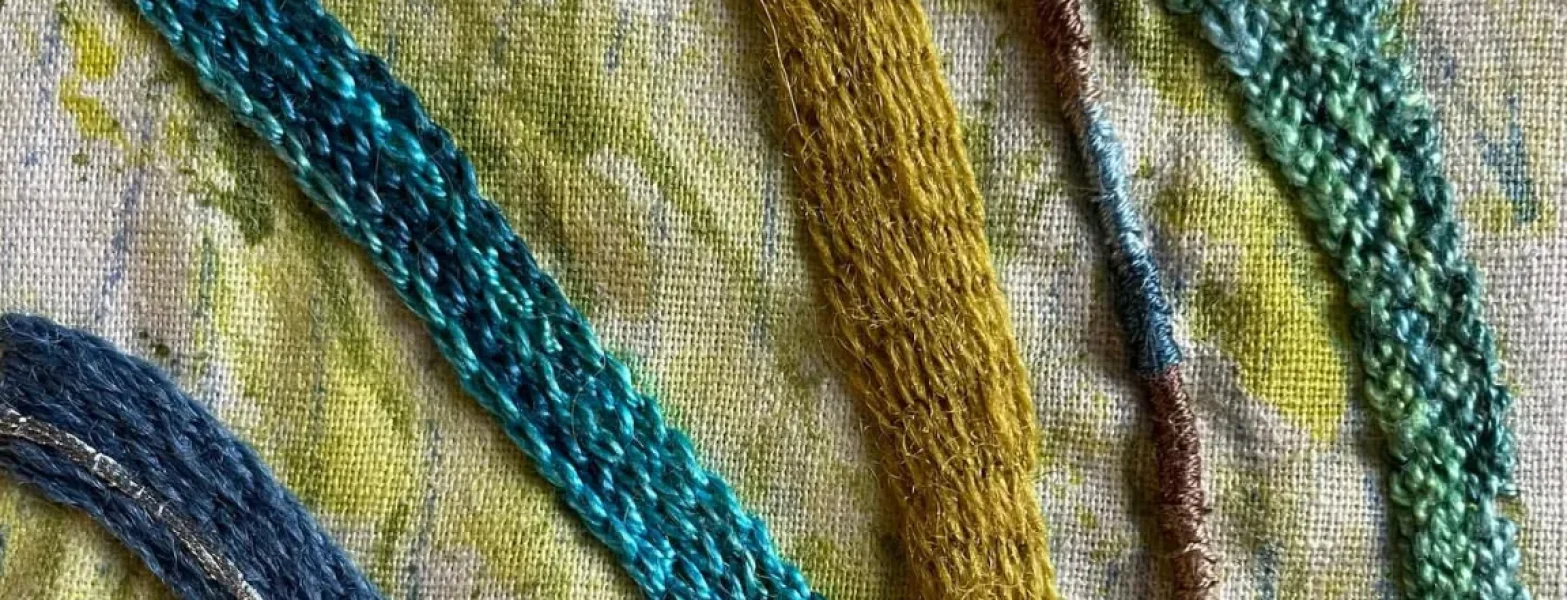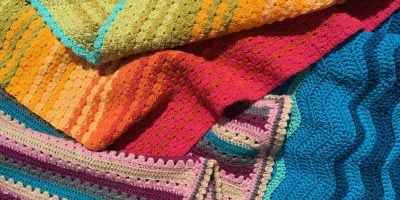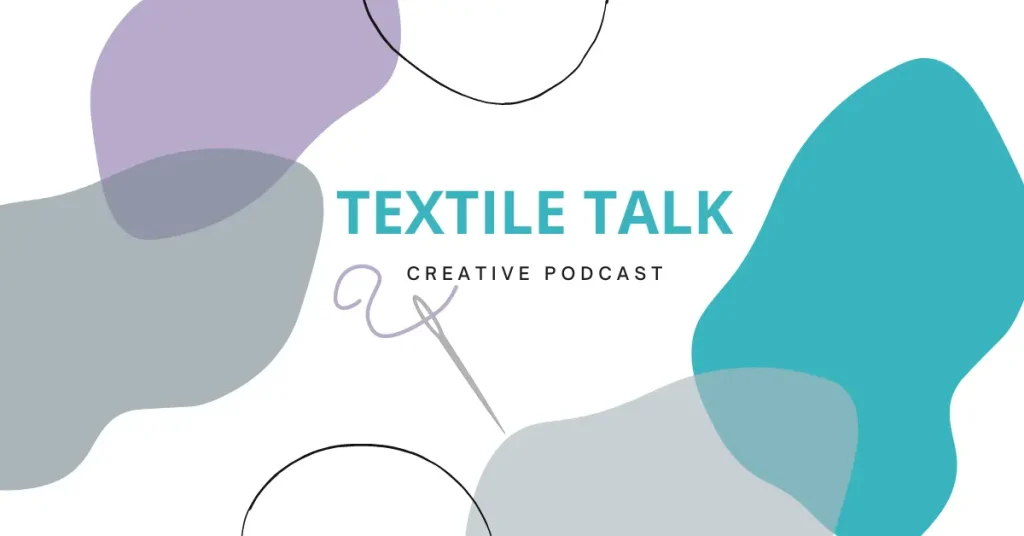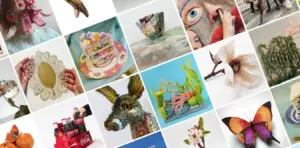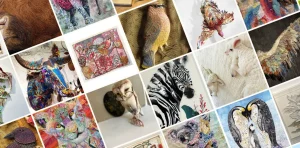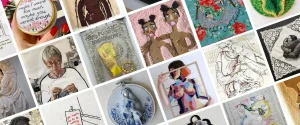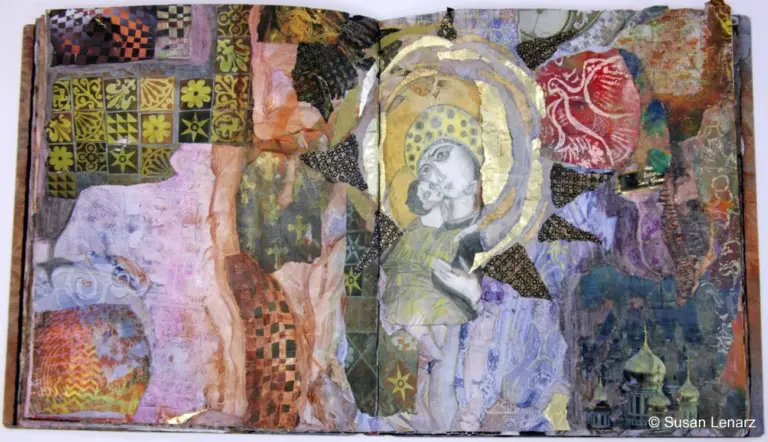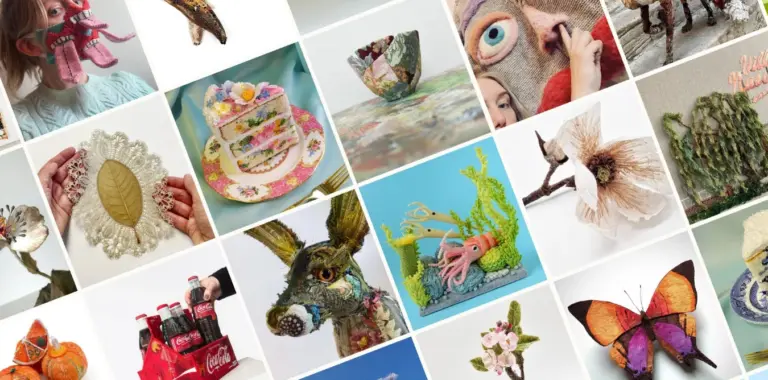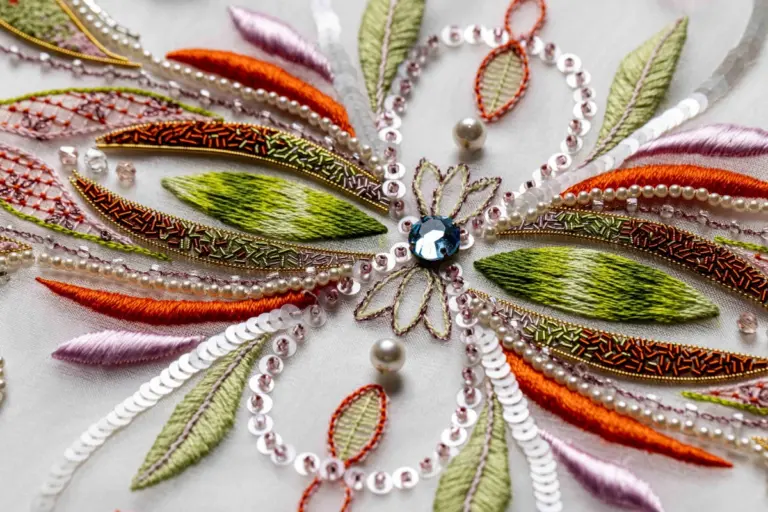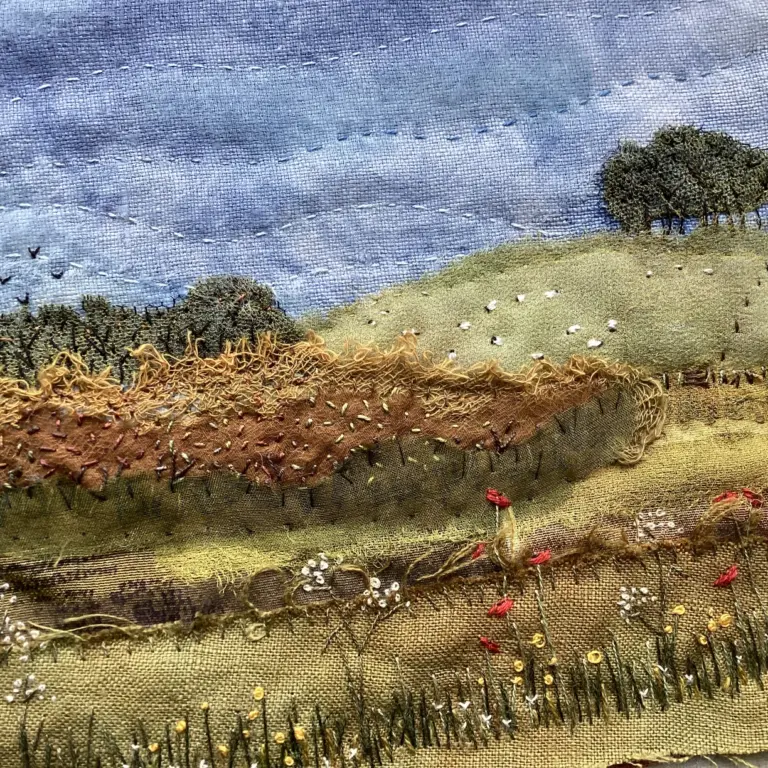We like to think that our courses have the ability to help students overcome personal challenges. Hand Embroidery (Skill Stage 3) graduate, Colleen Pearson is testament to this!
Colleen joined us with a desire to learn new techniques and earn a practical qualification. She quickly learned that with a little perseverance, she was able to overcome her dyspraxia, master new stitches and create wonderful, original designs.
Discover what’s next for Colleen Pearson and view her beautiful work. Whether you’re considering enrolling or just curious about the power of textile art, this graduate story offers plenty of advice and inspiration. This is her #MyStitchJourney
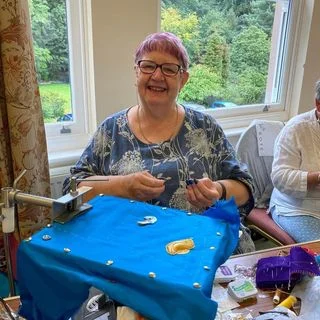
“I’ve learned that with perseverance I can achieve! Being successful in something you have found difficult is all the more rewarding. Producing my own designs was also new to me and I feel much more confident about design now.”
Colleen Pearson
Prior to enrolling with the School of Stitched Textiles I had done several workshops; Crewelwork, Bayeux stitch, and projects including a mixture of techniques like goldwork and stumpwork. I had also completed several kits. I used to do cross stitch but after a while I found it too repetitive. During the Pandemic I found crafting so helpful. It proved to be a great way of dealing with anxiety and I particularly enjoyed learning new skills including Dorset buttons and slow stitching. Because of my previous experience I felt confident to enrol onto the Skill Stage 3, Intermediate Hand Embroidery Course.
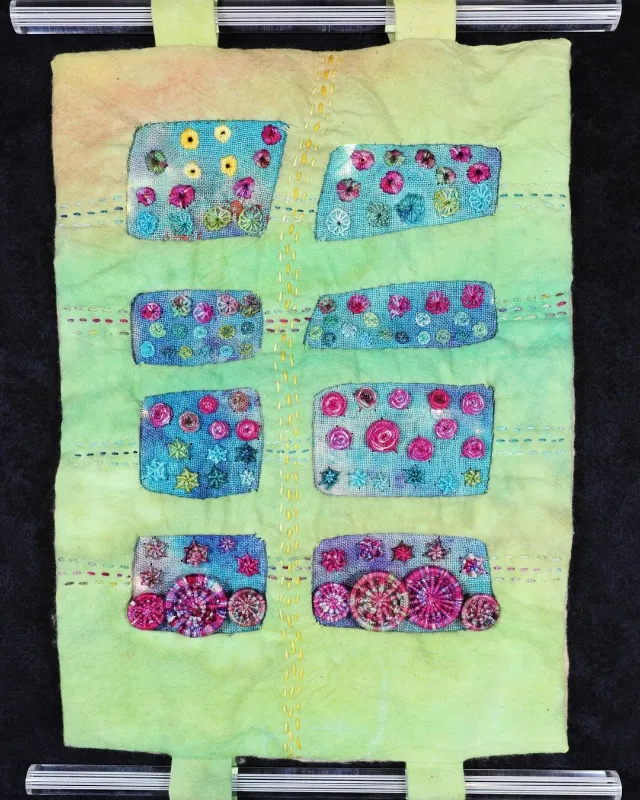

Studying with SST
I chose to enrol onto this course because I wanted to learn new techniques and develop skills. I also wanted to get a qualification in a practical subject. Previously, all of my qualifications had been academic.
When I was younger I dropped out of art college and now felt that I needed to explore my creative side more. I looked online for City and Guilds courses and could not find a face-to-face course locally so chose the School of Stitched Textiles as I had already considered their courses. I had already successfully studied through distance learning so felt confident with this mode of delivery.
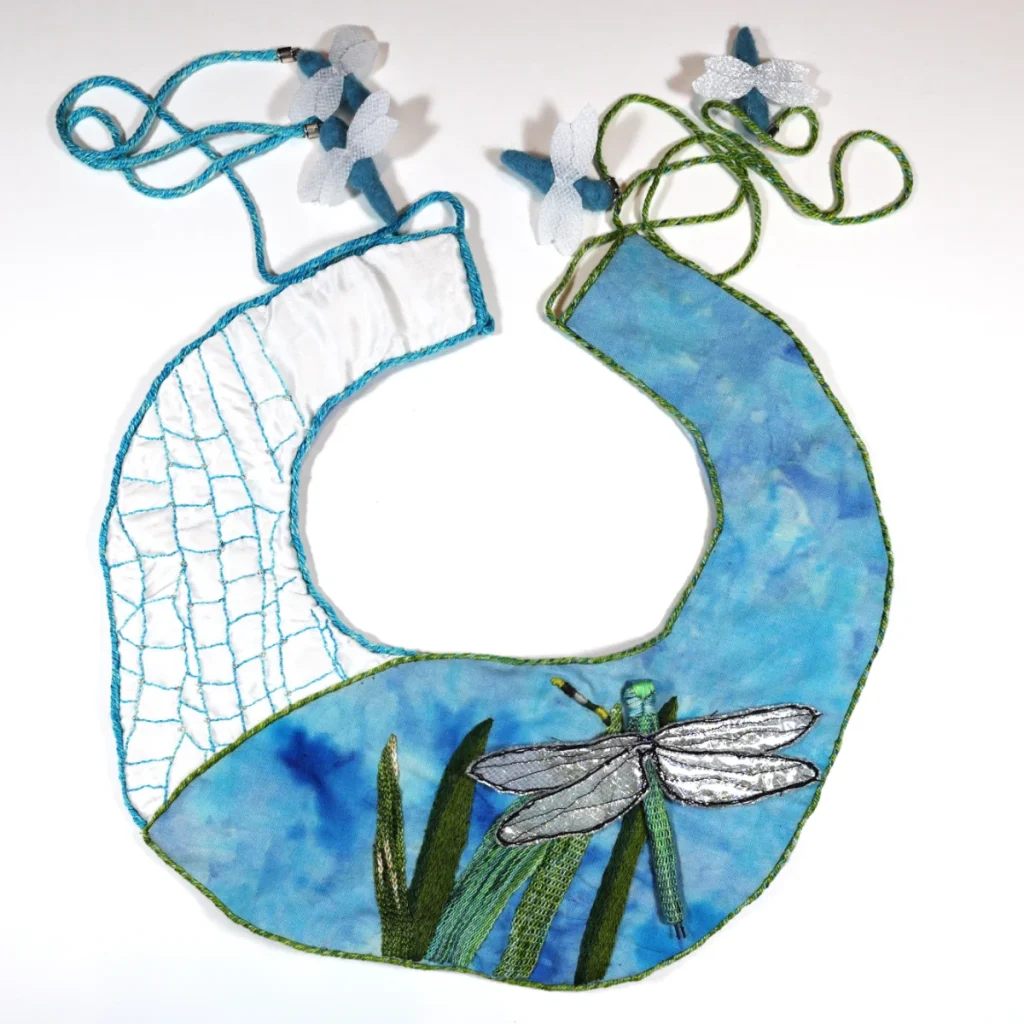
What have you learnt?
The most helpful thing I’ve learnt is that I am capable to doing things. Especially things that I expect to find difficult!
I am dyspraxic. Dyspraxia is primarily associated with the planning and organisation of movement, but also affects executive functions such as prioritisation, time management and the organisation of thought. Another problem that affects me is procrastination and I have learned that I tend to overestimate how long a task is going to take me. I often find that I put off starting some tasks (even failing to start a task at all). I also find anything that involves a lot of preparation off putting.
However, I’ve learned that with perseverance I can achieve! Being successful in something you have found difficult is all the more rewarding. Producing my own designs was also new to me and I feel much more confident about design now. Initially, using a sewing machine was a challenge but I did it. I prefer hand stitching as I can take my own time – machines are too quick for me and I find it hard to stitch in a straight line. Nevertheless, it is a skill I want to develop. I enjoyed dyeing and loved using my own hand-dyed fabrics and threads in projects. I also learned a lot of skills that I continue to use, including transferring designs, starting and finishing knots and new stitches and techniques. Generally I feel a lot more confident about working with textiles.
What’s next?
Since I am retired, I completed the course for my own enjoyment rather than as a potential career. However, I have been asked to do workshops by a couple of guilds that I’m a member of, and there is an opportunity to run workshops locally that I’m considering. I also want to enrol on to Hand Embroidery Skill Stage 4 but I really need to tidy up the clutter and organise my stash first.
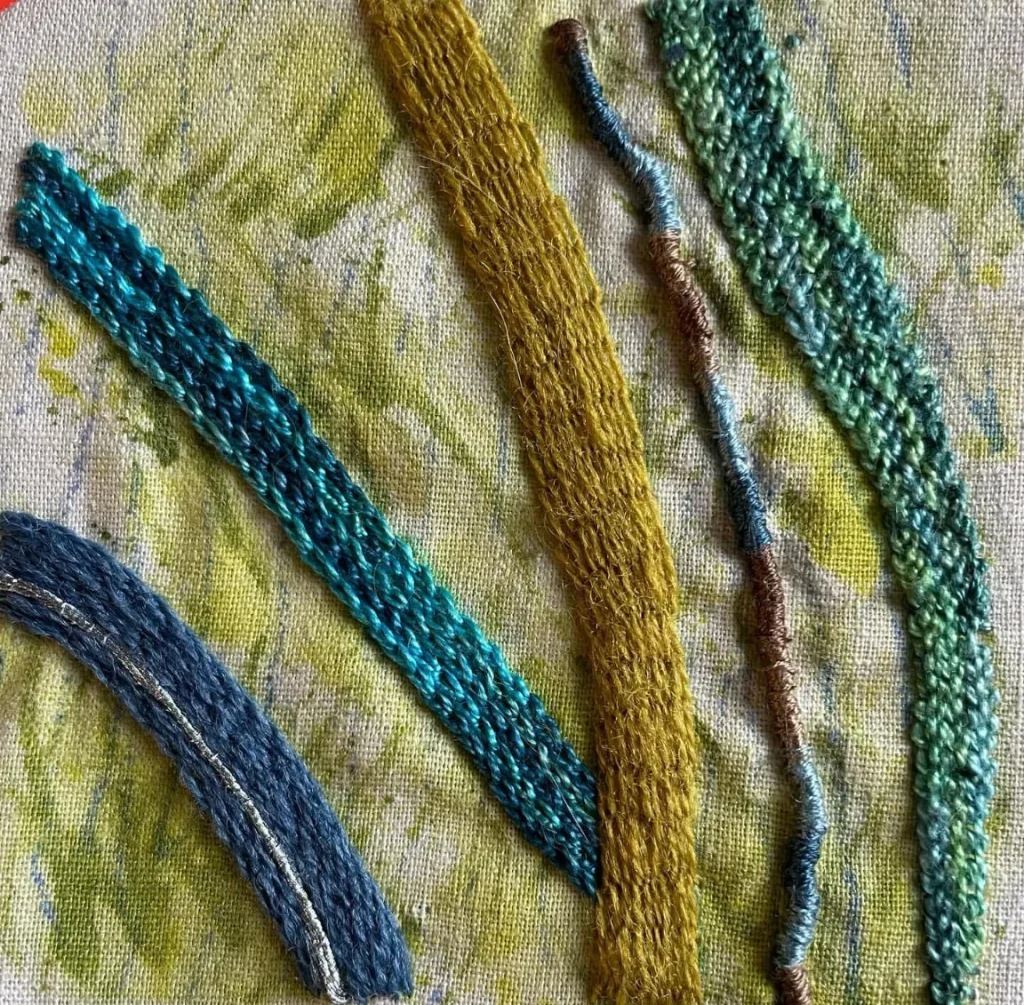
Advice to new students
To study through distance learning you do have to have some level of self-motivation. Of course, life can get difficult for any of us. I had two bereavements of close family members during the course, but my tutor was very supportive and I was allowed extra time. It’s great that the course includes wider aspects of textile work including dyeing. My tutor feedback was always timely, positive and helpful.
The biggest piece of advice I can give is to engage with the Facebook student group. It’s so useful to discuss things with other students and there are some really helpful guides on various aspects of the course and examples of previous students’ modules. I always found the Zoom meetings really helpful too.

